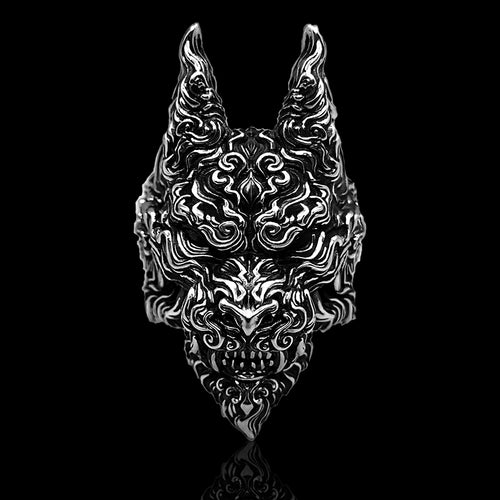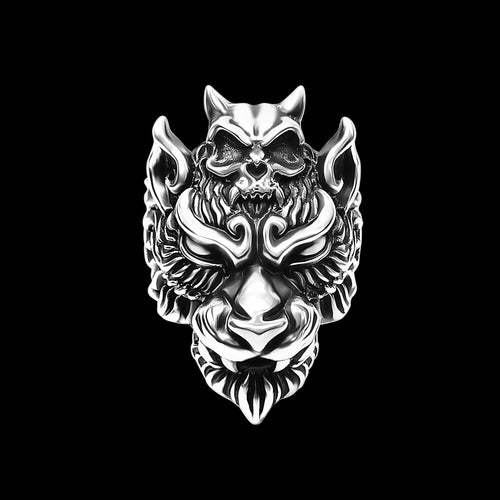Wolves have captured our imagination for centuries, representing different qualities across various cultures. From snowy forests to Norse legends, these majestic animals hold deep meaning for many people. Let's explore what wolves symbolize in different parts of the world and how they've influenced human societies throughout history.
| Key Takeaways |
|---|
| • Native Americans view wolves as spiritual guides and symbols of loyalty • In Canadian and US culture, wolves represent wilderness and ecological balance • Norse mythology portrays wolves as both companions to gods and harbingers of doom • Universally, wolves symbolize strength, family bonds, and freedom • Modern interpretations of wolves continue to evolve, influencing art and conservation efforts |
Native American Wolf Symbolism
For many Native American tribes, wolves are powerful spiritual guides. They represent loyalty, wisdom, and strong family bonds. Wolves teach us about working together and protecting our loved ones. Some tribes believe that wolves have special powers to connect the physical world with the spirit realm. This deep spiritual connection is reflected in numerous tribal legends and ceremonies, where wolves often play central roles as teachers, healers, and guardians.
In Native American cultures, the wolf is frequently associated with the medicine wheel, representing the direction of the east and the power of new beginnings. Many tribes, such as the Cherokee and Cheyenne, have wolf clans that embody the characteristics of these revered animals. The Pawnee tribe goes so far as to refer to the wolf as a "brother" or "star brother," highlighting the profound kinship they feel with these creatures.
These powerful symbols are beautifully captured in our Demon Wolf Ring and Wolf Shaman Ring. Each piece tells a story of strength and spiritual connection, embodying the deep reverence Native American cultures hold for these magnificent creatures. The intricate designs of these rings reflect the complex relationships between humans, wolves, and the spiritual world in Native American traditions.
Wolves in Canadian and US Culture
In North America, wolves have a complex history. Once feared as dangerous predators, they're now seen as important parts of nature. Many people in Canada and the US admire wolves for their strength, freedom, and family loyalty. Wolves remind us of the wild beauty of forests and mountains, serving as powerful symbols of the untamed wilderness that once dominated the continent.
Today, wolves are protected in many areas. They play a big role in keeping nature balanced. This shift shows how our understanding of wolves has changed over time. Conservation efforts have led to the reintroduction of wolves in various regions, such as Yellowstone National Park, where their presence has had a profound impact on the ecosystem. This has sparked a renewed interest in wolf ecology and behavior, leading to a deeper appreciation for their role in nature.
The cultural significance of wolves in North America is also reflected in literature, art, and popular media. From Jack London's "White Fang" to modern wildlife documentaries, wolves continue to captivate the imagination of people across the continent, symbolizing both the challenges and the beauty of coexisting with nature in the modern world.
Norse Mythology and the Wolf
In Norse myths from Scandinavia, wolves have both good and bad meanings. The god Odin had two wolf companions, Geri and Freki, showing how these animals were respected. But there's also the story of Fenrir, a giant wolf who was said to bring about the end of the world during Ragnarök, the Norse apocalypse. This duality reflects the complex relationship between Norse people and the wolves that inhabited their lands.
Norse warriors sometimes wore wolf skins to channel the animal's bravery and fierceness in battle. This shows how deeply wolves were tied to ideas of strength and courage. The concept of the "berserker," a warrior who fought with uncontrollable rage and strength, is often associated with the spirit of the wolf. In Norse culture, the wolf was also linked to Tyr, the god of war and justice, further cementing its association with bravery and honor.
The wolf's role in Norse mythology extends beyond these warrior associations. In some tales, wolves are seen as guardians of the forest and keepers of ancient wisdom. This multifaceted symbolism demonstrates the profound impact wolves had on Norse culture and spirituality, influencing everything from religious beliefs to military practices.
Native American
Spiritual Guide
Canadian/US
Nature's Balance
Norse
Strength in Battle
Universal
Family Loyalty
Universal Wolf Symbols
Across many cultures, wolves share some common meanings that transcend geographical and historical boundaries:
- Strength and Power: Wolves are often seen as powerful creatures, embodying the raw force of nature. Their ability to survive in harsh environments and their position as apex predators contribute to this perception.
- Loyalty: Wolf packs show strong family bonds, with complex social structures that many human societies admire and seek to emulate. The way wolves care for their young and work together has become a universal symbol of familial devotion.
- Freedom: Wolves represent the wild, untamed parts of nature. Their presence in an ecosystem is often seen as a sign of a healthy, free wilderness, untouched by human interference.
- Intelligence: Many cultures admire wolves for their smarts and hunting skills. Their ability to strategize, communicate, and adapt has led to wolves being associated with cunning and wisdom in many traditions.
These qualities make wolves popular symbols in art, stories, and even jewelry. Our silver wolf rings for men capture these powerful meanings in wearable art, allowing individuals to carry the spirit of the wolf with them in their daily lives.
Modern Wolf Symbolism
Today, wolves continue to fascinate us, their symbolism evolving with our changing understanding and appreciation of these animals. They appear in movies, books, and TV shows, often as symbols of wildness or teamwork. Many people choose wolf tattoos or jewelry to show their connection to these amazing animals, reflecting a desire to embody the qualities associated with wolves.
As we learn more about real wolves through scientific research, we see how smart and social they are. This has helped change old fears into respect and admiration for these incredible creatures. Conservation efforts have also played a significant role in reshaping public perception, highlighting the importance of wolves in maintaining ecological balance.
In modern environmental movements, wolves have become symbols of wilderness preservation and the need to protect endangered species. Their reintroduction to various ecosystems has been closely studied, providing valuable insights into the interconnectedness of nature and the impact of apex predators on their environments.
Conclusion: The Enduring Spirit of the Wolf
From ancient myths to modern conservation efforts, wolves hold a special place in human culture. They teach us about loyalty, strength, and our connection to nature. Whether you're drawn to their spiritual meaning or their wild beauty, wolves continue to inspire and amaze us, serving as a bridge between our civilized world and the untamed wilderness.
The symbolism of wolves has evolved over time, reflecting changing attitudes towards nature and our place within it. From feared predators to respected members of the ecosystem, wolves have come to represent the complex relationship between humans and the natural world. Their enduring presence in our myths, art, and cultural consciousness speaks to the deep-rooted connection we feel with these magnificent creatures.
Explore our collection of wolf-inspired jewelry to carry a piece of this powerful symbolism with you. Each ring is a reminder of the wolf's enduring spirit and the rich cultural meanings they hold across the world. By wearing these pieces, you not only adorn yourself with beautiful craftsmanship but also connect with the timeless legacy of the wolf, a creature that continues to captivate and inspire us across cultures and generations.


